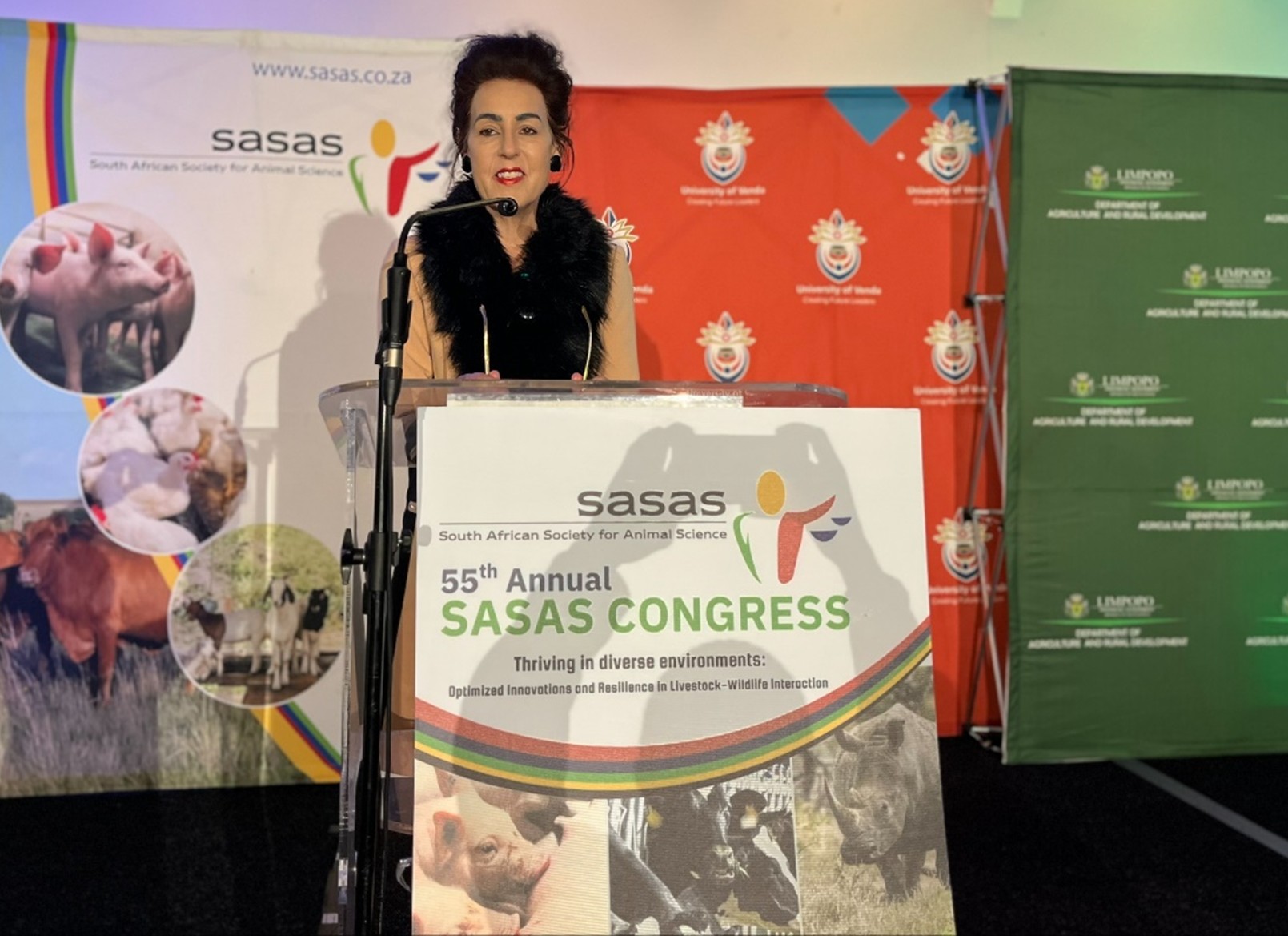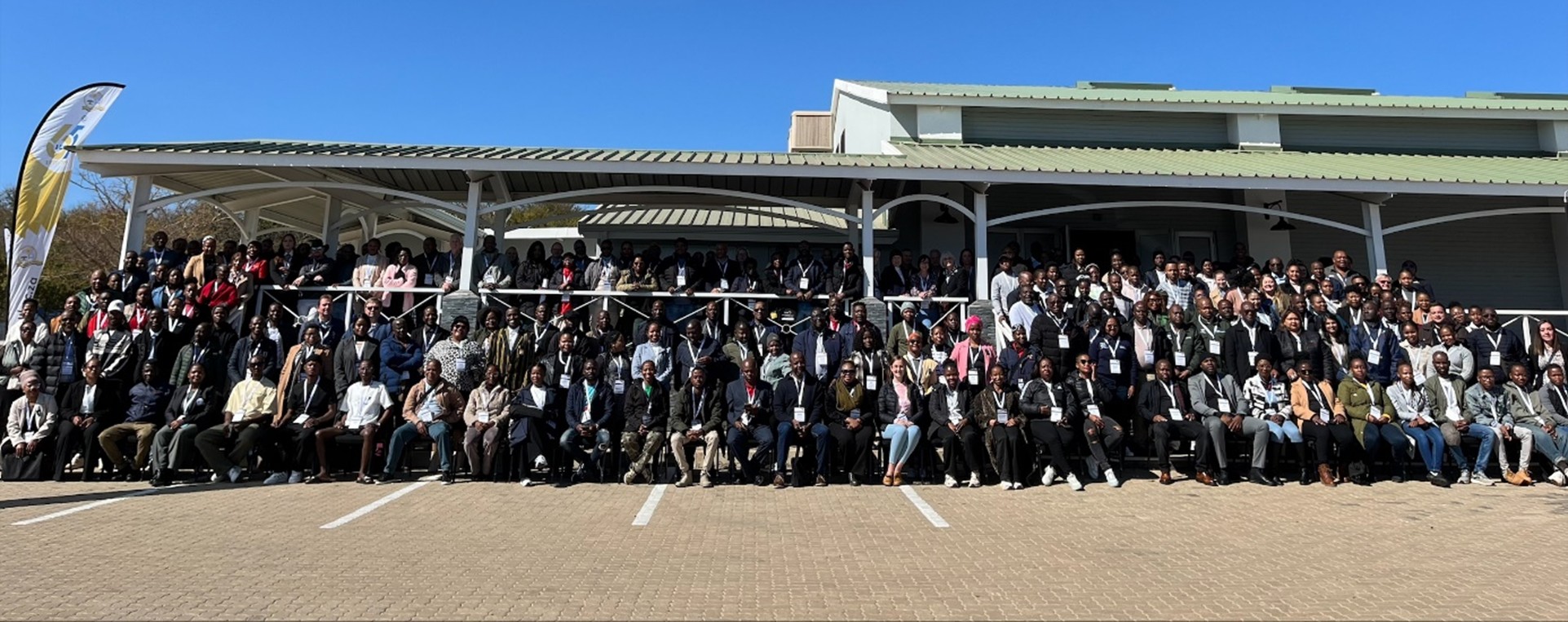By Maphuti Machabaphala

Dr Melinda Labuschagne, Chief Director for Agrarian Transformation delivers the welcoming address.
The South African Society for Animal Science (SASAS), in partnership with the Department of Agriculture and Rural Development, and the Universities of Limpopo and Venda, has hosted the 55th Annual Congress at The Ranch Hotel and Resort in Polokwane, under the Polokwane Municipality within the Capricorn District.
This prestigious three-day congress, taking place from 8 to 10 July 2025, was held under the theme: Thriving in Diverse Environments: Optimised Innovations and Resilience in Livestock-Wildlife Interactions. The theme highlights the need for sustainable practices that promote harmony between livestock and wildlife, especially in regions facing climate variability and ecological pressures.
The Congress serves as a crucial platform for scientists, academics, policymakers, and students to present research findings, explore innovative technologies, and engage in collaborative discussions that drive the future of animal science. It also encouraged knowledge exchange that can inform policy and improve farming practices across rural and commercial landscapes.
Animal production continues to be a cornerstone of South Africa’s agricultural economy, with significant contributions to food security, rural development, and employment. As such, this event was vital for shaping strategies that respond to both environmental challenges and economic demands.
On behalf of the MEC for Agriculture and Rural Development, Ms Nakedi Kekana, Dr Melinda Labuschagne mentioned that collaboration with relevant stakeholders is essential for shaping policies that support a sustainable agricultural sector - advancing food security, economic inclusion, development and transformation, climate-smart agriculture, and sustainable rural growth.
The department, she noted, actively supports genetic preservation programs and encourages innovation, particularly in the development of non-conventional animal feeds.
Regarding artificial intelligence, Dr Labuschagne stated that these technologies are no longer optional, but fundamental to the advancement of the agricultural industry as a whole.
In her closing, Dr Labuschagne further remarked that this event aligns with the objectives of the G20 Summit, reflecting on the wide range of issues delegates engaged in. The congress resulted in meaningful, tangible outcomes for farmers, producers, and communities ultimately contributing to a shared future for the province, the country, and the planet.



